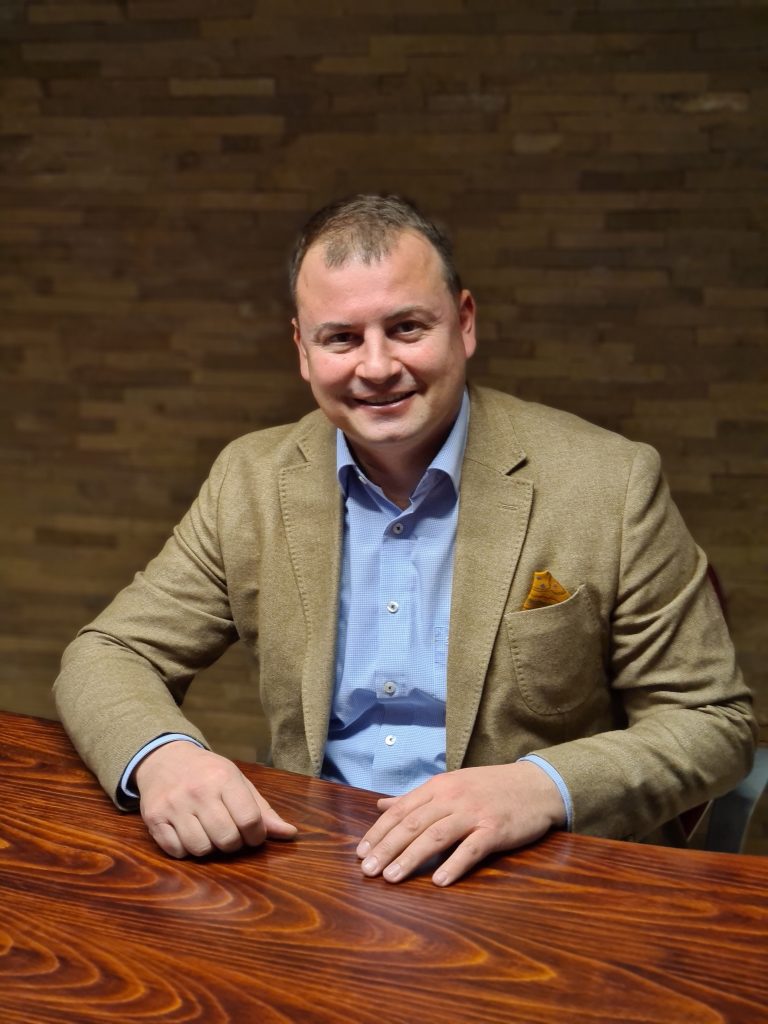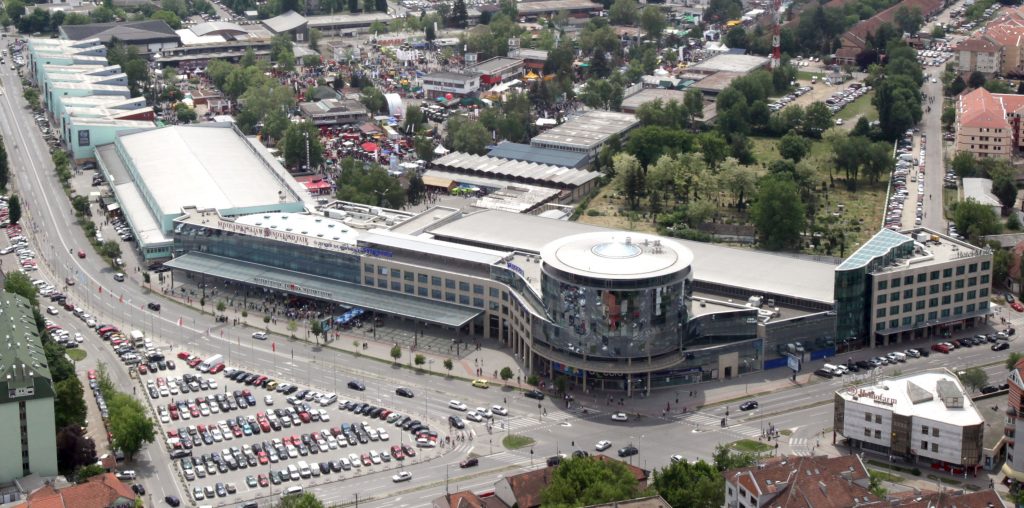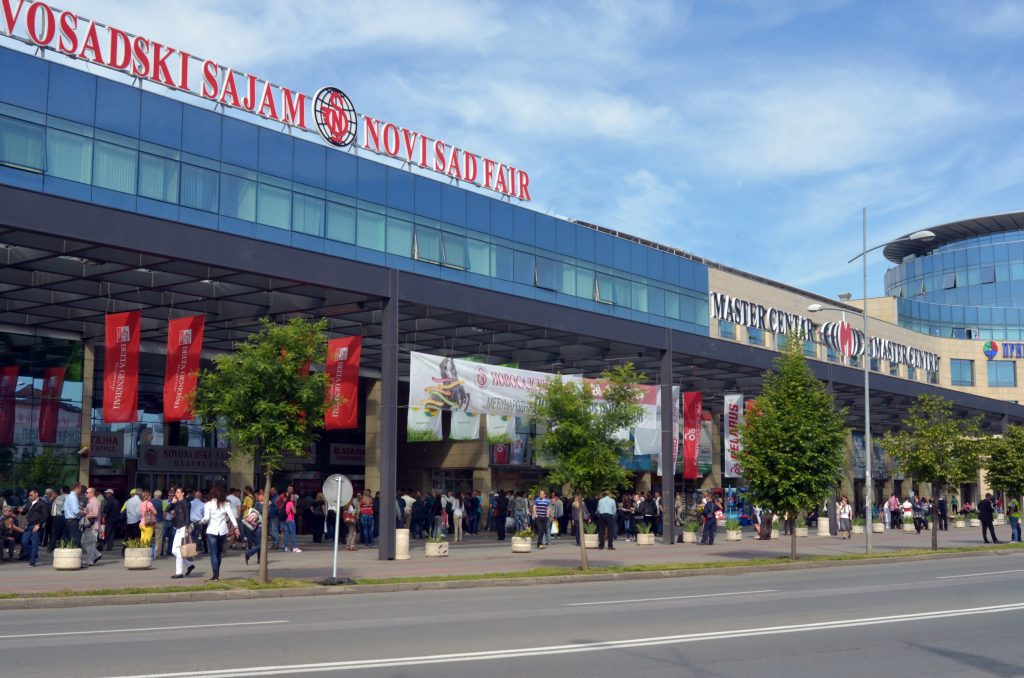In the period from 2014 to 2019, we managed not only to stabilize the Fair’s operations but also to generate additional income of around 1.5 million euros per year
The coronavirus pandemic has strongly affected operations of the event industry and has led to the cancellation of numerous fairs, as well as changes in how fairs operate. However, despite the new circumstances, the Serbian government’s Crisis Response Unit has given the Novi Sad Fair permission to hold fairs in the period from 18 to 24 September, namely the 88th International Agricultural Fair, 53rd International Hunting and Fishing Fair and Ecology Fair. We talked with the Novi Sad Fair’s Director-General, Slobodan Cvetković, MBA, about how the Fair adjusted its business during the pandemic, but also about the events they will organize in the upcoming period.

You have been at the helm of the Novi Sad Fair since 2014. What results would you especially like to single out during these past seven years?
Being the director of the Novi Sad Fair for seven years is a short and a long period, in a way. The difficult situation we encountered in 2014, namely laying off workers and the practical reengineering of all existing fair events posed a great challenge. During this period, we worked on stabilizing the company and introducing, devising and holding new events. We listened carefully to the needs of our clients and took into account the best interests of Novi Sad, the Province and of course, the state. We have intensified cooperation with diplomatic missions, by, among other things, organizing special events and creating opportunities to meet such organizing the Diplomacy Day, with the view of establishing new and boosting the existing relations, but also to bringing in new foreign partners, such as those from Israel, Tunisia, the Czech Republic, Poland, China, Egypt and Morocco, who will participate in this year’s fairs.
“The Novi Sad Fair is also a communication interface, not only for business but also for culture”
We have expanded our cooperation to include event-organizing companies. We have implemented several good ideas together by adding more dates to our fair calendar and using spacious fair premises that were re-functioned and re-purposed. I would like to mention a few of these events – the Novi Sad Oktoberfest, the Beekeeping Fair of the Danube Region, Auto-Moto Exchange, and the Milling and Baking Days conference and fair.
The coronavirus pandemic, in particular, has affected those fairs that gather a large number of people. How did the pandemic affect the Novi Sad Fair’s operations and results? How did you adjust your programme during the pandemic?
I will follow up on the answer to the previous question in which I briefly described the development path and the crisis management until 2019. Following the onset of the coronavirus epidemic, we, as the Fair’s management, encountered a completely new form of business crisis and a set of limitations created by the new situation, as well as the absence of classic management tools because these new challenges had not been analyzed so far, especially in the event industry.
This was a second crisis during my term in the office, considering that, in the period from 2014 to 2019, we managed not only to stabilize the Fair’s operations but also to generate additional income of about 1.5 million euros a year. This gave us vitality and stability. We started the first pandemic year in good condition, i.e. have 1 million euros in our foreign currency account and managing a balanced business without the need to borrow money.

Regardless of all the aforementioned, the coronavirus has created extraordinary challenges for us and our business, which we definitely could not have imagined even in our wildest dreams. After taking out a loan in order to help our company to function normally, we focused on online formats as the only available market space at that time, which meant that we could continue working and remain a communication channel where supply and demand meet. We saw the new reality as a challenge that prompted us to change our business model and adapt to the situation. Hence, we created a bilingual platform called ExpoOnline.rs, for business connections, meetings and dissemination of information and knowledge, thus strengthening old and establishing new connections in cyberspace.
The pandemic, but also the fast development of new technologies, have contributed to their greater application and faster introduction into business. To what extent does the Novi Sad Fair use new technologies in its activities?
As a company, the Novi Sad Fair adapted relatively quickly to the new circumstances, using outsourcing as the only shortcut in overcoming the gap in the new technological environment. However, this does not apply to all our employees and reduced employee operability could prove to be a problem. If the business environment continues to be oriented towards virtual business, we will have a surplus of workers because part of the activities related to the real business will disappear, and there will be no space for them in the new business environment because they have not mastered the new skills and knowledge required to solve business tasks.
However, with agile and vigilant management, the company will quickly meet all the requirements to keep its business stable for a foreseeable future.
The Novi Sad – European Capital of Culture Foundation and the Novi Sad Fair have recently signed a cooperation agreement. What does this agreement include and imply?
In addition to all the details related to the joint project, the agreement stipulates that the Novi Sad Fair is also a communication interface, not only for business but also for culture, and as such, is an ideal place through which to communicate with various members of the public. We are participating in this project as one of the most recognizable symbols of Novi Sad. We have signed this agreement to successfully implement activities related to the Migration programme. We are talking about an innovative book fair that will include numerous performances, theatre plays concerts and other programmes thematically integrated into one of the eight programmes arches the Novi Sad – European Capital of Culture Foundation.

The International Agricultural Fair is your trump card, which will be held for the 88th time. What are visitors going to see at the Fair this year?
This year will certainly be a test for everybody who organizes fairs in the so-called hybrid format, but with an emphasis on a realistic fair. Being mindful of the challenges of holding a fair in both outdoor and indoor venues, as well as specialized and business events, but also catering to visitors in the new epidemiological circumstances, we decided to keep all the segments that we had in previous years and add an online format. I have to mention the largest National Exhibition of Livestock that will take place this year too.
The Novi Sad Fair has announced that it will revert to organizing events in the traditional way as of this autumn if the circumstances allow it. What are your plans for the rest of 2021?
In addition to the Agricultural Fair, which will take place from September 18 to 24, we plan to hold the 53rd International Hunting and Fishing Fair and the Ecology Fair at the same time. We have received permission from the Government of the Republic of Serbia’s Crisis Response Unit for doing this, and we are planning to hold these events while adhering to necessary health protocols, such as those applied at the recently held Exit Festival, as well as all measures and protocols determined by the Crisis Response Unit, so that we can make the event can be safe for all exhibitors and visitors.
We have the support of the Czech Republic, which is our partner country, Generali Osiguranje Serbia (our general sponsor) and Al Dahra (the gold sponsor and donors of our competition prizes). Both domestic and foreign exhibitors have expressed great interest in the Agricultural Fair which will feature collective exhibitions of the Czech Republic, Italy, Spain, the Netherlands, Hungary, the Republic of Srpska, Belarus, Russia and Poland.
“In addition to the Agricultural Fair, which will take place from September 18 to 24, we plan to hold the 53rd International Hunting and Fishing Fair and the Ecology Fair at the same time”
Due to the epidemiological situation, we are cautiously optimistic, but also ready for a reduced number of visitors and people getting used to the new protocols that are important for life and work in the current environment.
The beginning of September is reserved for the Auto-Moto Exchange, an event which we co-organize, and the EV Days fair and conference dedicated to electric mobility, which is a new global technological solution for transporting people and goods. BalCCon – Balkan Computer Congress is planned for October, as is the Conference of the Seed Producer Association of Serbia and the Homeland Fair. In November, we are going to hold the Serbia Hair Fair.